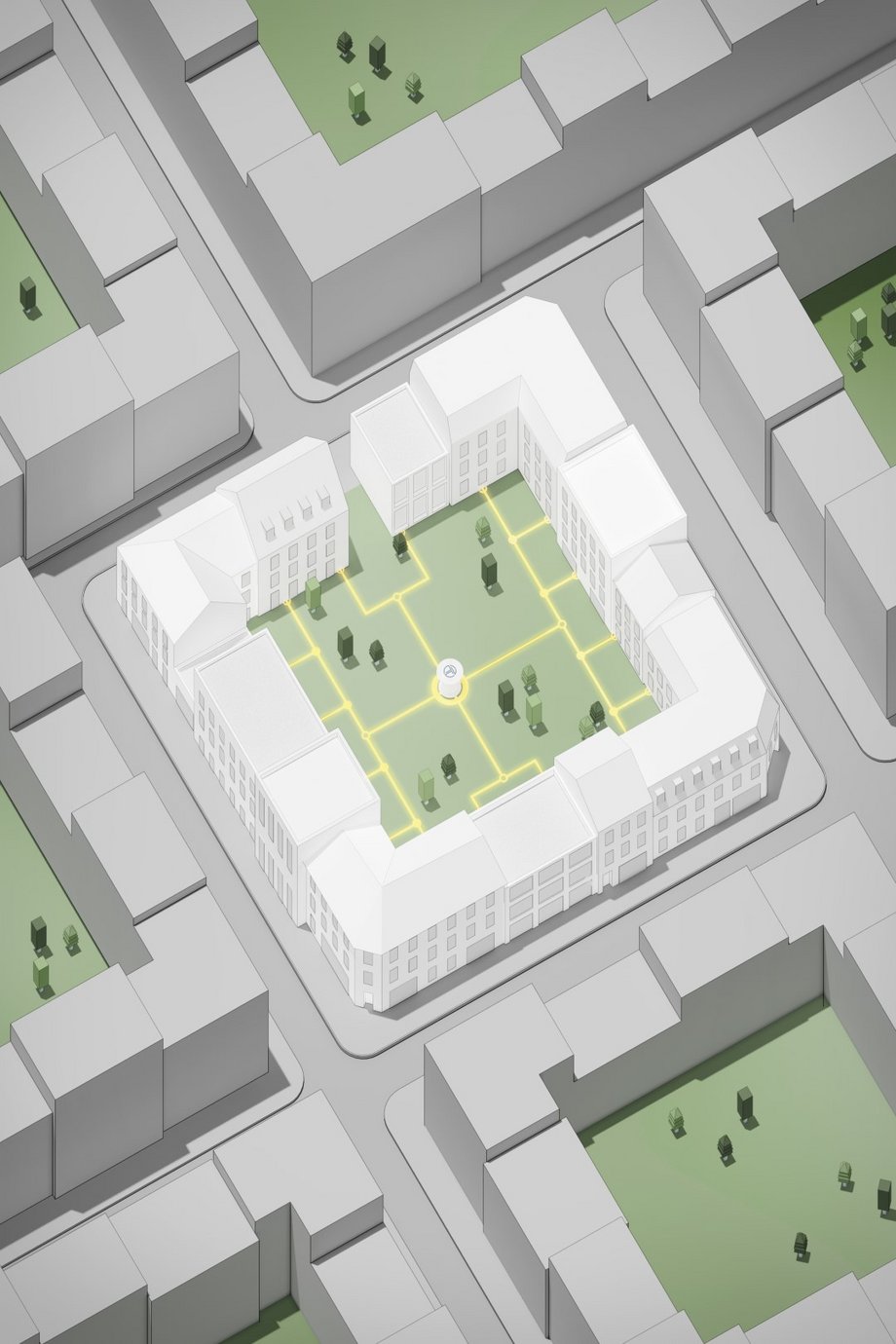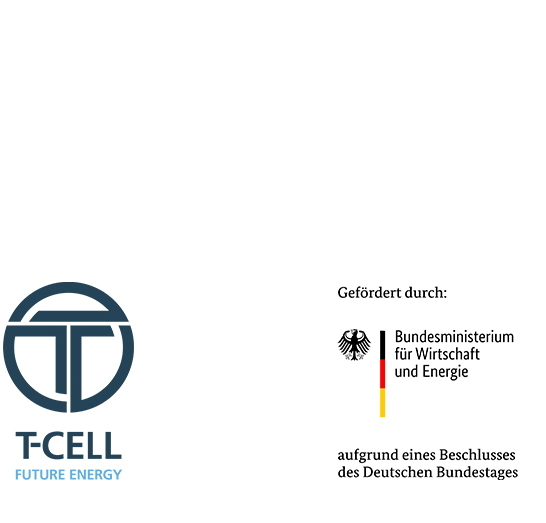Decentralised use The T-cell is a cleverly linked, decentralised energy provider and creates regional value added.

The T-cell meets local electricity demand as well as supplying thermal energy by providing residual heat from the electricity generation to the surrounding buildings.
Spread all over Germany, the T-cell creates a network of linked energy servers in an “internet of energy”. Each T-cell is controlled decentrally and responds intelligently to local requirements. Consequently, not only is the power network stabilised; a robust infrastructure is also created, which is easy to maintain. This decentralised nature means that the system can be highly dynamic: individual T-cell modules can be specifically placed in standby mode or restarted, so that the amount of energy produced is exactly as required to meet the demand. An energy surplus or shortage is therefore avoided.
One T-cell with 270 kW power can supply electricity and heat for example to up to 50 homes at once. If local demand increases, the intelligent networking means that the T-cell can request additional power from another nearby T-cell. If demand falls, for example at night, the T-cell adapts its power level and switches to an economy mode.
The modular design of the T-cell means that components can be produced in a decentralised, smart factory system. Rapid and targeted provision as well as easy maintenance by local people responsible are therefore possible and the logistical cost is reduced to a minimum. Moreover, regional value added is created in machinery and plant businesses.

